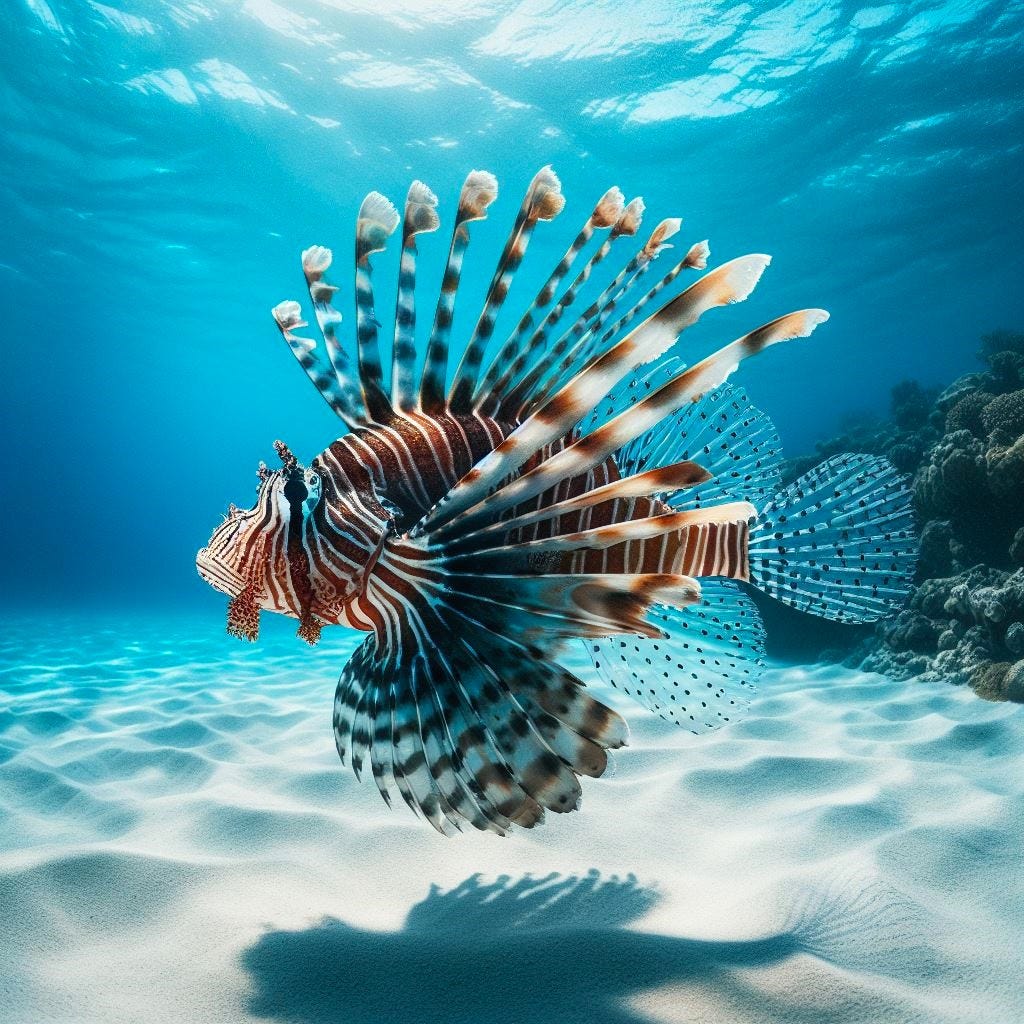Kosher Food to Die For?
Can a poisonous creature be kosher?
The lionfish is a voracious predator which is highly venomous. Lionfish possess 18 venomous spines, which can cause extreme pain and nausea, convulsions, dizziness, fever and numbness. Lionfish are also invasive species in the Mediterranean, having swum up from the Red Sea via the Suez Canal, and they are an ecological menace. But are they kosher?
Lionfish do have fins and scales, as required in this week's Torah portion. But what about their venom?
In the 17th century, Rabbi Yom Tov Lippmann Heller (Maadanei Yom Tov to Rosh, Chullin 68:5) discussed a report of a poisonous aquatic creature with legs called a Stincus marinus. In discussing whether or not it should be classified as a fish, he argued that it would be problematic to rate its appendages as fins, because a poisonous creature could not be kosher. His argument for this was that Scripture states "deracheha darchei noam, the ways of the Torah are pleasantness." While the Stincus marinus turned out to be a terrestrial lizard rather than an aquatic creature (as discussed in my book The Camel, The Hare And The Hyrax), what about lionfish?
Rabbi Lippman-Heller's argument is difficult. It’s not as though the Torah is telling you to eat a poisonous creature; it’s giving the principles of how to determine an entire kosher category. Quail are kosher, and yet under certain migratory conditions they can be poisonous due to the food that they eat (which is exactly how some of the Children of Israel died). And berries and plants are all kosher, even though there are plenty that are poisonous. Accordingly, the fact that something is poisonous does not mean that it could not possess the kosher signs. Thus, there would be no reason to disqualify lionfish.
In any case, lionfish are venomous, not poisonous (unlike the notorious fugu fish of Japan). The danger is in being impaled by the spines, not from eating them. The venomous spines can easily be cut off, rendering the fish perfectly safe to eat. But even if the venom were to be ingested, it would safely be broken down by stomach acids; it would only be harmful if one had an internal cut.
Lionfish will be one of the highlights of The Biblical Feast 2024: Legends from the Sea! Rest assured that the venomous spines will be safely removed. But aside from serving the flesh of the fish, I want to do something else: apparently after cutting off the spines, you can bake them in an oven to neutralize the venom, and they can then be used as toothpicks. I’m getting some pushback on doing that, though!
Click the picture below to go the website about the feast and reserve seats. Note that last year’s feast sold out and there was a long waiting list, so book early to avoid disappointment!





I've always wondered: Are fugu or other pufferfish kosher?
Purely an academic question: No way I'm going to eat one of those.
Random correction (if you’ll permit me):
Lipmann was (is?) a kinui for Yom Tov, so R’ Heller’s given name was Yom Tov Lipmann (actually, his given name was Gershon Shaul Yom Tov Lipmann ha-Levi) and his surname was Heller (not Lipmann-Heller).
There was also, for example, a (less famous) Yom Tov Lipmann Muhlhausen (who wrote the controversial Sefer Nitzachon—not to be confused with the Sefer Nitzachon [Yashan, or “Vetus” in Latin] published about 2 centuries earlier—against Christianity) and R’ Yisrael Salanter’s youngest son was a mathematician named Yom Tov Lipmann Lipkin (Salanter’s actual surname was Lipkin; he was called Salanter after the town of Salant in Lithuania).